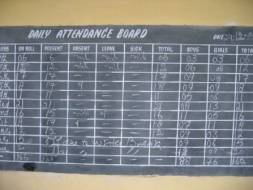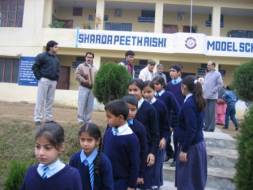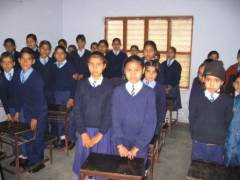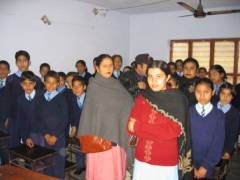
Sharda Peeth Rishi Model School
Keeping Hope Alive
History
In 1990, terrorism and sectarian violence caused nearly 500,000 Kashmiri Hindus to flee the land of their ancestors, the fabled valley of Kashmir in the Indian state of Jammu and Kashmir. These victims of terrorism, refugees in their own country, left behind virtually all of their worldly possessions as they had to flee under threat to life and honor.
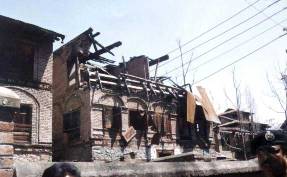
The ugly face of terrorism: Destroyed homes of community
As in most situations, the worst sufferers of this violence were the children of this displaced people. With their parents consumed with, yet often unable to, provide the basics of living to their families these unfortunate children were often left without the only hope for a better life – a healthy education.
The Rishi Memorial School was started in the mid-1990s with contributions from a group of US-based Indian-Americans concerned for the future of these indigent children. This remarkable experiment in social self-service began with only about a dozen students and one teacher.
Sustained Accomplishments
Since its humble beginnings, a group of dedicated individuals from within this refugee community has succeeded in sustaining and growing this school against all odds. Today, the Rishi Memorial School educates nearly 200 students in the first through eighth grades. Not only does this school serve the refugee Kashmiri Hindus but it is also spreading the light of education among underprivileged children of the host community. Over a dozen selfless and dedicated educators are managing this school with minimal compensation.
Selfless Volunteers: Winning against all odds
Tomorrow looks bright: Protecting core values
The Need for Support
At the present time, there are two specific needs that are limiting the potential of this school:
1. Due to extremely tight operating budgets, often managed in deficit, the school is unable to provide a competitive learning environment to its students in the first through eighth grades. This category includes basics such as classroom supplies, learning materials, computers, and even teacher’s salaries.
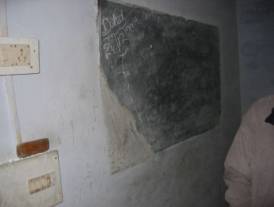
Badly needed infrastructure e.g. Classroom blackboards
2. The school desperately needs to expand to the tenth grade, an important milestone towards being “recognized” by the Indian education system. Without the tenth grade, children would have to travel hours every day to continue their education. Many will be unable to afford the cost, and some will altogether drop out of school.



